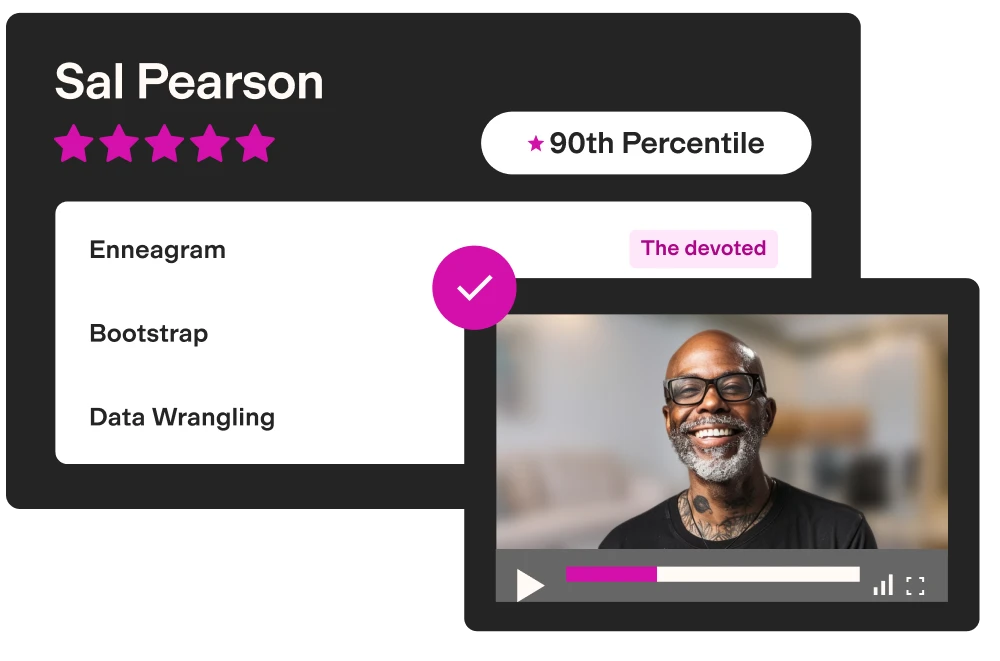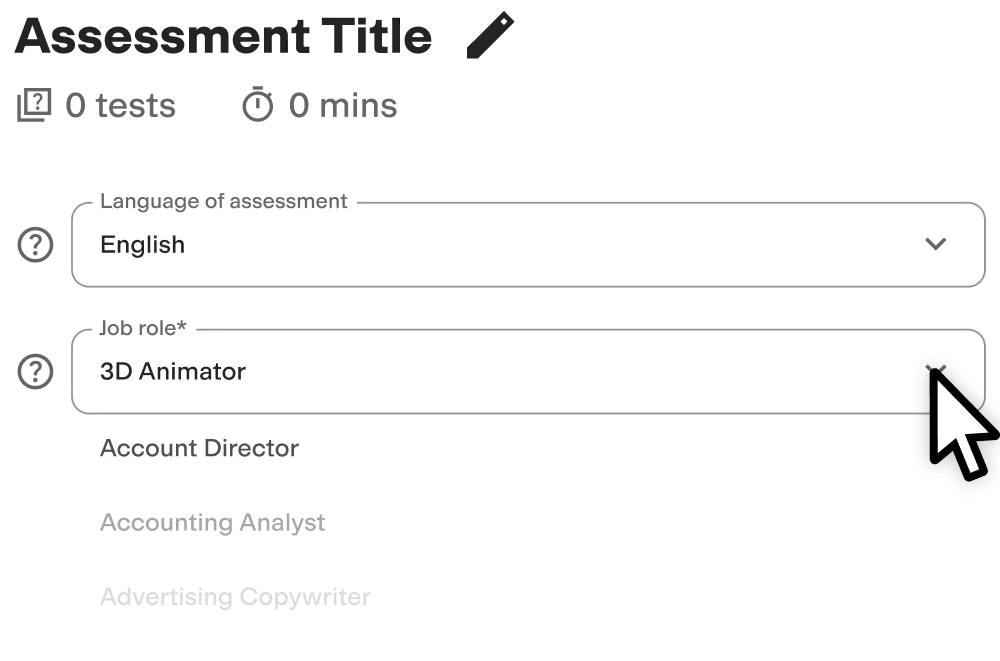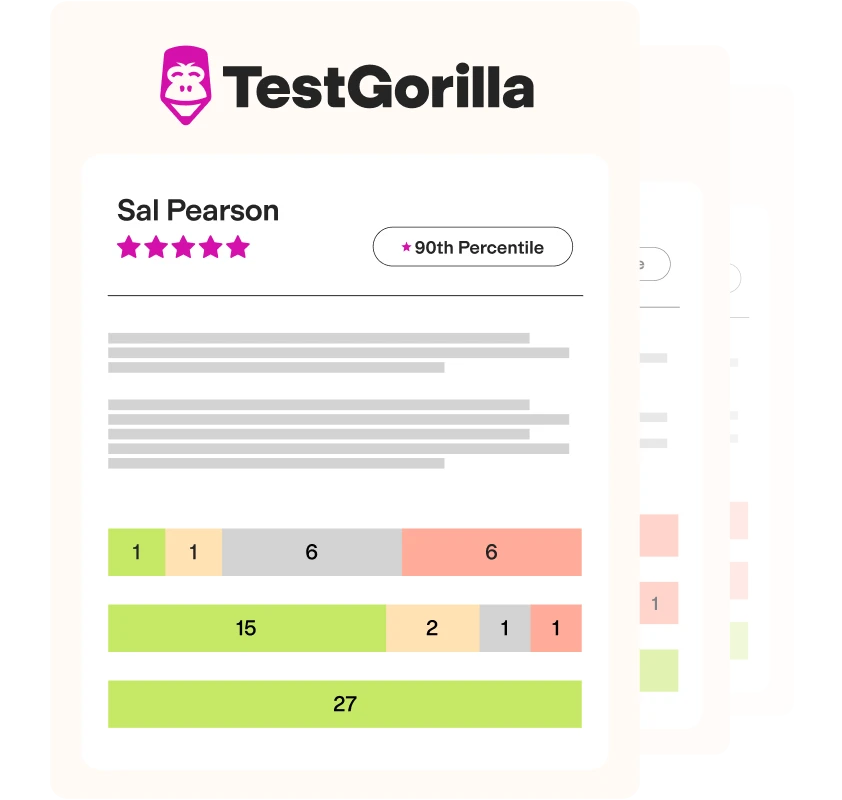Algorithms for Software Engineering test
Summary of the Algorithms for Software Engineering test
The algorithms for software engineering test evaluates candidates’ knowledge of algorithmic approaches and their ability to solve situational tasks using them. This test helps you identify programmers who are proficient in applying algorithms.
Covered skills
Growth functions, sorting algorithms, and divide-and-conquer approaches
Heaps, recursion, dynamic programming, and amortized analysis
Greedy algorithms and graph search algorithms
Advanced graph algorithms
Use the Algorithms for Software Engineering test to hire
Software engineers, data engineers, data analysts, artificial intelligence engineers, R&D engineers, and any other roles requiring intermediate knowledge of algorithms for software engineering.
About the Algorithms for Software Engineering test
In our age of information and technology, businesses of all kinds handle vast amounts of data and work to build applications. Algorithms are at the heart of computing, and people with algorithmic knowledge can quickly and efficiently recognize certain questions and patterns, allowing your business to leverage the power of computer programming in a way that is more efficient and less prone to error.
Traditional algorithmic approaches provide efficient solutions to a vast universe of problems. Such algorithms can be rearranged to meet exact business requirements. The questions on this algorithms for software engineering test focus on a variety of real-life scenarios and problems that can be solved using algorithms. Questions on the test are related to all aspects of computer and information science, from software engineering to data science.
This algorithms for software engineering test evaluates candidates’ understanding of growth functions, sorting algorithms, and divide-and-conquer approaches. It also examines candidates’ skills in heaps, recursion, dynamic programming, amortized analysis, greedy algorithms, and graph algorithms. Lastly, the final skill area covers advanced graph algorithms. Overall, this comprehensive algorithms for software engineering test provides a comprehensive overview of candidates’ algorithmic knowledge at an intermediate level.
Candidates who perform well on this test have a strong knowledge of traditional algorithmic approaches and can select the best approach to use when working on situational, real-life tasks. This test will help you to hire candidates who have all the necessary skills to help your company achieve its goals in computer and information science, software engineering, and data analysis.
The test is made by a subject-matter expert
TestGorilla’s tests are created by subject matter experts. We assess potential subject-matter experts based on their knowledge, ability, and reputation.Before being published, each test is peer-reviewed by another expert, then calibrated using hundreds of test takers with relevant experience in the subject.
Our feedback mechanisms and unique algorithms allow our subject-matter experts to constantly improve their tests.
Gary R.
Gary has been working in the data science field for more than three years and is proficient in the fields of machine learning and data analysis. He has a Bachelor’s degree in Economics and a Master’s degree in Computer Science. The combination of those two fields helps Gary to achieve even greater results.
He is fond of computer science and loves to work on projects related to Artificial Intelligence which is, in his opinion, the future of our world.
Use TestGorilla to hire the best faster, easier and bias-free
Our screening tests identify the best candidates and make your hiring decisions faster, easier, and bias-free.
Create high-quality assessments, fast
Building assessments is a breeze with TestGorilla. Get started with these simple steps.
FAQs
View a sample report
The Algorithms for Software Engineering test will be included in a PDF report along with the other tests from your assessment. You can easily download and share this report with colleagues and candidates.




